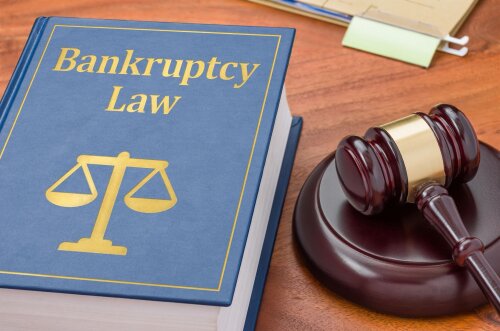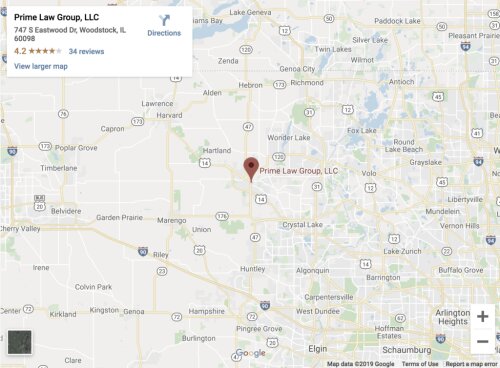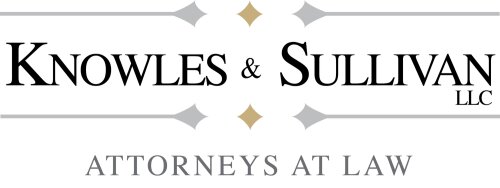Best Communications & Media Law Lawyers in Alabama
Share your needs with us, get contacted by law firms.
Free. Takes 2 min.
Or refine your search by selecting a city:
List of the best lawyers in Alabama, United States
About Communications & Media Law in Alabama, United States
Communications and Media Law is an area of legal practice that deals with the regulation of telecommunications, broadcasting, publishing, advertising, and Internet-based media. In Alabama, this field encompasses a wide range of legal issues, from freedom of speech protections and defamation claims to compliance with federal regulations for broadcasters and modern digital media concerns. Alabama lawyers in this field often advise clients on matters involving radio, television, newspapers, and online platforms to ensure lawful and ethical dissemination of information.
Why You May Need a Lawyer
Legal issues in communications and media can arise unexpectedly and may carry significant financial or reputational risks. You might require a communications and media law attorney in the following situations:
- You or your business is accused of defamation, libel, or slander.
- Your media outlet or publication faces challenges regarding freedom of speech or censorship.
- You are launching a new media company and need help with copyright, trademark, or content licensing.
- Your broadcast or online content is subject to regulatory investigation, such as by the FCC.
- You are entering into distribution, production, or licensing agreements for media content.
- You need to enforce or defend your intellectual property rights in Alabama.
- Your business is targeted by false advertising or unfair business practices.
- You face privacy concerns related to the publication or transmission of personal data.
Local Laws Overview
Alabama communications and media law is shaped by federal statutes like the Communications Act, as well as Alabama’s own legal codes and case precedents.
- Defamation (Libel and Slander): Alabama law recognizes both libel (written defamation) and slander (spoken defamation). State courts take into account whether the plaintiff is a private or public figure and whether actual malice exists.
- Open Records and Public Access: Alabama has an Open Records Act, granting public access to most government records, with certain exceptions to protect privacy or sensitive information.
- Shield Laws: Alabama offers limited protections for journalists against being compelled to reveal sources, but these protections have specific thresholds and may differ from broader federal protections.
- Broadcast and Telecommunications Regulation: Most telecommunications and broadcasting issues in Alabama are governed primarily by federal law, such as FCC regulations, but state law can apply to certain local disputes and licensing matters.
- Right of Publicity and Privacy: Alabama recognizes the right to privacy and offers civil remedies for invasion of privacy, including misappropriation of likeness or intrusion upon seclusion.
- Digital and Social Media: With the constant growth of digital media, Alabama courts encounter new questions about online speech, cyber harassment, and electronic records, often working in tandem with federal law.
Frequently Asked Questions
What is defamation, and how is it handled under Alabama law?
Defamation is a false statement made about a person that damages their reputation. In Alabama, defamation includes both libel (written statements) and slander (spoken statements). Plaintiffs must generally prove the statement was false, made to a third party, and caused harm. Public figures must also prove actual malice.
Are there any state-specific protections for journalists in Alabama?
Alabama has its own shield law, which gives limited protection for journalists against forced disclosure of sources. However, this applies mainly to certain types of published materials, and the protections may not be as broad as those found in other states or under federal law.
Does Alabama have laws regarding public access to government records?
Yes. The Alabama Open Records Act provides the right to access public records, though there are exceptions, particularly for records pertaining to security, privacy, or ongoing investigations.
How does Alabama law address online harassment or cyberbullying?
Alabama criminalizes certain types of online harassment and cyberbullying, especially when they involve threats, stalking, or targeted harassment. Victims may also have civil remedies under invasion of privacy or infliction of emotional distress laws.
What should I do if I am accused of copyright infringement for something posted online?
You should consult a qualified attorney immediately. Copyright infringement is governed by federal law, but an Alabama-based lawyer can advise you on your rights, possible defenses, and how to respond to cease-and-desist letters or lawsuits.
Can I use someone’s photograph or likeness without permission in Alabama?
Generally, using a person’s likeness for commercial gain without permission may violate their right of publicity or constitute invasion of privacy under Alabama law, with possible legal consequences.
Are there restrictions on advertising claims in Alabama?
Yes. False or misleading advertising is prohibited under both Alabama and federal law. Enforcement may be carried out by the state attorney general’s office or the Federal Trade Commission.
Who regulates broadcast media in Alabama?
Broadcast stations in Alabama are primarily regulated by the Federal Communications Commission (FCC), though state laws may supplement federal rules in certain areas such as business licensing or deceptive practices.
What steps can I take if someone is spreading damaging falsehoods about me online?
Consult with an Alabama communications law attorney to evaluate your options. Depending on circumstances, you may have a case for defamation, harassment, or violation of privacy rights under Alabama law.
What are my rights as a publisher or broadcaster regarding free speech?
Both the First Amendment to the U.S. Constitution and provisions in Alabama’s constitution protect free speech, but there are limits in cases involving defamation, obscenity, incitement, or violation of other applicable laws.
Additional Resources
If you are seeking more information or assistance with communications and media law in Alabama, consider the following resources:
- Alabama Press Association: Offers guidance and resources for media professionals in the state.
- Federal Communications Commission (FCC): The primary regulator for radio, television, and telecommunications services.
- Alabama Office of the Attorney General: Handles complaints about deceptive trade practices and consumer protection issues.
- Alabama State Bar: Provides lawyer referral services and resources for finding attorneys licensed in communications and media law.
- U.S. Copyright Office: For copyright registration and related issues.
Next Steps
If you need legal assistance with a communications or media law concern in Alabama:
- Gather all relevant information and documentation related to your issue.
- Consider writing down a timeline and any questions or concerns you have before contacting a lawyer.
- Use resources like the Alabama State Bar or legal referral services to find attorneys experienced in communications and media law.
- Schedule a consultation to discuss your matter and explore your legal options.
- If your situation involves urgent matters such as legal notices, lawsuits, or government inquiries, seek legal help as soon as possible to protect your rights.
Remember, communications and media law can be complex, and a qualified Alabama lawyer can help you navigate the legal landscape, avoid pitfalls, and safeguard your interests.
Lawzana helps you find the best lawyers and law firms in Alabama through a curated and pre-screened list of qualified legal professionals. Our platform offers rankings and detailed profiles of attorneys and law firms, allowing you to compare based on practice areas, including Communications & Media Law, experience, and client feedback.
Each profile includes a description of the firm's areas of practice, client reviews, team members and partners, year of establishment, spoken languages, office locations, contact information, social media presence, and any published articles or resources. Most firms on our platform speak English and are experienced in both local and international legal matters.
Get a quote from top-rated law firms in Alabama, United States — quickly, securely, and without unnecessary hassle.
Disclaimer:
The information provided on this page is for general informational purposes only and does not constitute legal advice. While we strive to ensure the accuracy and relevance of the content, legal information may change over time, and interpretations of the law can vary. You should always consult with a qualified legal professional for advice specific to your situation.
We disclaim all liability for actions taken or not taken based on the content of this page. If you believe any information is incorrect or outdated, please contact us, and we will review and update it where appropriate.
Browse communications & media law law firms by city in Alabama
Refine your search by selecting a city.













